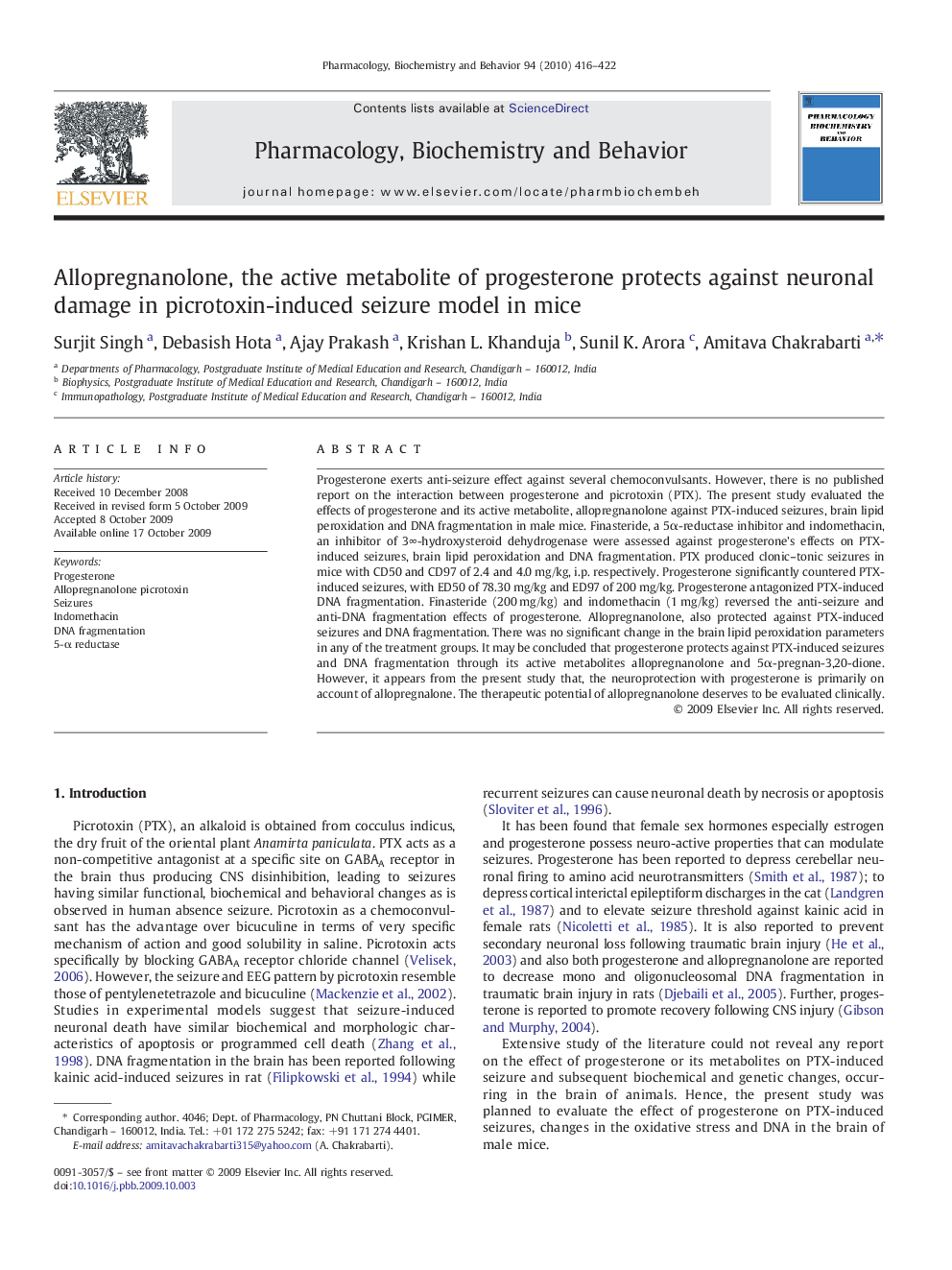| Article ID | Journal | Published Year | Pages | File Type |
|---|---|---|---|---|
| 2013187 | Pharmacology Biochemistry and Behavior | 2010 | 7 Pages |
Progesterone exerts anti-seizure effect against several chemoconvulsants. However, there is no published report on the interaction between progesterone and picrotoxin (PTX). The present study evaluated the effects of progesterone and its active metabolite, allopregnanolone against PTX-induced seizures, brain lipid peroxidation and DNA fragmentation in male mice. Finasteride, a 5α-reductase inhibitor and indomethacin, an inhibitor of 3∞-hydroxysteroid dehydrogenase were assessed against progesterone's effects on PTX-induced seizures, brain lipid peroxidation and DNA fragmentation. PTX produced clonic–tonic seizures in mice with CD50 and CD97 of 2.4 and 4.0 mg/kg, i.p. respectively. Progesterone significantly countered PTX-induced seizures, with ED50 of 78.30 mg/kg and ED97 of 200 mg/kg. Progesterone antagonized PTX-induced DNA fragmentation. Finasteride (200 mg/kg) and indomethacin (1 mg/kg) reversed the anti-seizure and anti-DNA fragmentation effects of progesterone. Allopregnanolone, also protected against PTX-induced seizures and DNA fragmentation. There was no significant change in the brain lipid peroxidation parameters in any of the treatment groups. It may be concluded that progesterone protects against PTX-induced seizures and DNA fragmentation through its active metabolites allopregnanolone and 5α-pregnan-3,20-dione. However, it appears from the present study that, the neuroprotection with progesterone is primarily on account of allopregnalone. The therapeutic potential of allopregnanolone deserves to be evaluated clinically.
